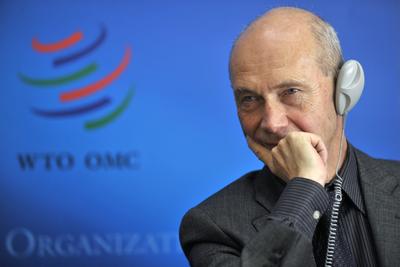But in the absence of a miracle – in which the US and China take steps to break the deadlock within the next few weeks – the Doha Round, as we have known it, will be dead.
There have been many reasons put forth for the difficulties that have faced the Round. Some are intrinsic to the Round, for example, its premature launch in the shadow of the September 11 terrorist attacks when the world wanted to show solidarity with the US; the over-loaded agenda; and the undefined and politically contested meaning of the ‘Doha Development Agenda.’ Some attribute it to the WTO’s cumbersome approach to decision-making; the challenge of negotiating multiple complex issues in a member-driven G153; and the Single Undertaking, which prevents countries from opting out of agreements that they are not ready to join. Others see it as a failure of leadership by the major powers, especially on the part of the US, but also by the rapidly emerging large economies, China, India and Brazil.
Whatever the causes, the inability of WTO members to reach agreement on trade rules appropriate to the 21st century has seen governments resort to alternative ways of pursuing their agendas, mostly in the form of preferential trade agreements (PTAs). While some have argued that these buttress multilateralism, in the context of a WTO that is declining in relevance, PTAs could become a substitute rather than a complement to global trade cooperation. We are already seeing the emergence of a network of ‘hub and spoke’ trade arrangements that have the potential to undermine the global rules-based trade system that has existed since the end of the Second World War, prompting fears about the return to a ‘19th century style Great Powers system.’
This would be bad news for Australia, and for all other ‘non-great powers’ that rely on the rules-based system to protect them from the law of the jungle. In an open letter signed by 13 WTO members, Australian Trade Minister Craig Emerson argued that a Doha deal was still achievable, and ‘worth fighting for, both in its own right, and in the longer-term interests of the multilateral trading system upon which we all so heavily rely.’ These statements are important and consistent with Australia’s long-standing reputation as good friend of multilateralism and a significant player in the WTO. But exhortations are not enough and the Gillard government must now go the next step and take an active role in advancing constructive and creative ideas for the new ways of doing business in the WTO. Australia has form here, having played a major role in getting agriculture written into international trade rules during the Uruguay Round (1986-94). To be sure, much in the world has changed since then but Australia has the capacity to be an agenda-setter and an honest broker: more than ever before, it should be advancing agendas for WTO reform and encouraging the major players to re-engage with the WTO.
The Gillard Government’s recent Trade Policy Statement further enhances Australia’s credentials and credibility as a strong supporter of multilateralism.
The statement emphasizes the ongoing importance of unilateral economic reform to ensure that non-traded inputs are competitively priced, to reduce the burden of excessive regulation, and to promote productivity growth, where Australia has lagged in recent years. It also provides the most clearly argued rationale yet for when and why Australia will use PTAs, focusing on PTAs to ‘level the playing field’ where Australian trade partners have provided better market access to a major competitor. Australia will also negotiate PTAs that genuinely support the multilateral system that are deeply liberalising and covering substantially all trade. In this regard, the Gillard government is hopeful that the Trans-Pacific Partnership (TPP) agreement, which involves nine countries in the Asia Pacific region, could be model for the development of a broader based agreement that would begin to tame the tangle of PTAs in the region.
To that end, Australian negotiators have been pushing hard for the TPP to be a truly regional agreement with regional rules of origin. This is an admirable goal, consistent with Australia’s support for multilateralism, but it is not shared by all participants and is therefore unlikely to come to pass. More to the point, PTAs are not a substitute for the rules-based trade system. Above all, Australia should be focusing its energies on the way forward for the WTO.
Ann Capling is Professor of Political Science at the University of Melbourne and co-editor (with Patrick Low) of the book Government, Non-State Actors and Trade Policy-Making: Negotiating Preferentially or Multilaterally? published in September 2010 by Cambridge University Press.


I have to say that I am not very familiar to WTO Doha round negotiations, not to mention the causes of current difficulties.
I would like to ask a question however. Why could WTO not adopt a different approach to negotiations by having a forward opt-in strategy?
Such a strategy would advance negotiations and make it an agreement among the first-in if there is at least a set minimum number of countries with a minimum share of world trade that agree to a clause, keeping it open for other members to opt in at a later stage. Once opting in, a country should only move forward.
This strategy would settle on agreements and leave disagreements aside.
With proper provisions or revision to existing rules, it could avoid the current cumbersome negotiations and make gradual and steady advancement and could potentially replace the need for regional trade agreement for many countries.
In fact, such a strategy could be applied to some other international organisations, such as different UN bodies, more specifically, UN climate change negotiations.